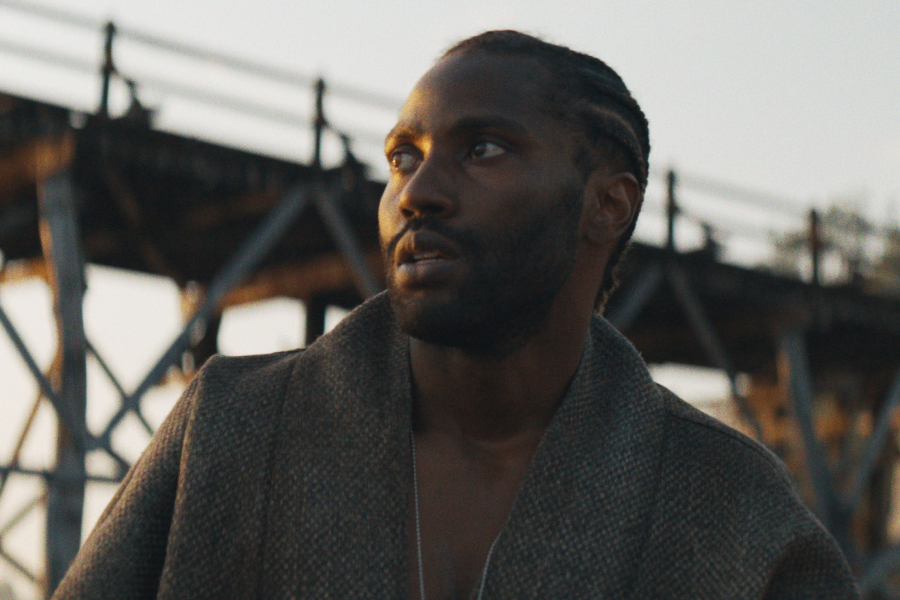Eager to add on to his growing repertoire of science fiction epics, “Rogue One: A Star Wars Story” director Gareth Edwards brings audiences his latest film, “The Creator,” released Sep. 29. It stands out as a stunning visual treat that will leave audiences in awe of its spectacle.
Working alongside head screenwriter Chris Weitz, Edwards intends to leave audiences with a heart wrenching story involving the nature of artificial intelligence and the morality involving the most critical issue regarding their existence: are they living beings or simply tools to be used and discarded? By the end of this film, risk versus reward will seem to be the wrong concept when dealing with robots who are identically human.
“The Creator” illustrates a world in endless war between the U.S. government and artificial intelligence. The story follows the journey of Sergeant Joshua Walker (John David Washington), an ex-military man seeking to find purpose in his life after a military operation gone wrong. He feels responsible for the death of the woman he loved, leading him down a journey to find out whether or not she’s still alive. This journey brings Walker into contact with the first artificially intelligent child in this world, a robot named Alphie (Madeleine Yuna Voyles). She holds great power — enough to bring an end to the conflict between humanity and AI. Through trials and tribulations, Walker and Alphie fight through a war-torn world in order to bring about some semblance of peace.
The journey, as a whole, is successful in what it wants to portray. The connection between Walker and Alphie can be felt, with the heroes putting each other on separate arcs based on their initial opinions of each other becoming more developed over time. This is founded on what they go through in the story, keeping each other alive in key scenarios where death was very much a possibility. The story beats that keep the narrative in order hold heavy importance for the arcs of our characters.
However, they have some issues with logical consistency in their writing. Characters will appear from out of nowhere in order to facilitate a moment that is needed, without any indication that they could reach the location where they were required to be. Other characters will pursue our main heroes through every point in the story, with no indication that they possess the ability to do so. Most importantly, our characters will be shown escaping situations that they should have no physical capability to do so based on their established characteristics. All of these things facilitate the plot moving forward at all costs, which ultimately hurts logical consistency within the film as well as the overall pacing. These issues can ultimately undermine their journeys as a result, as their conclusions will feel unearned. They were not brought about by their actions, but rather a forced plot.
Edwards’ films truly shine in the visual department, as his directing style is incredibly top notch. Shot composition and camera angles are excellent, giving the viewers a great sense of scale of the world created by Edwards. The atmosphere of “The Creator,” does a fantastic job at helping the audience understand the state of the world, with opposing global superpowers adopting different architecture and technology based on their feelings toward AI.
This helps to enforce the differences between the two main players, and why the world at war came to be. The worldbuilding as a whole is quite good, with a fresh, new look on how artificial intelligence grows and adapts to become part of the world. Instead of maintaining robot tendencies like most media, Edwards leans into the concept of AI becoming more human, with robots wearing clothes and using the same mannerisms as human beings. They fill the same jobs and feel the same feelings, giving us insight into how they have evolved. It is a fantastic set of visual storytelling by Edwards and stands as the highlight of this film.
Thematically, Edwards is clear on what he wants to portray. Themes of grief and regret are present through the actions of Walker, as every action he commits to is prompted by all of the loss in his life. Evolution and unity are clear through the different perspectives on AI in human society; what it means for robots to become a part of human society and what effect that would have on human beings. All of these themes intertwine through Walker’s growing perspective, ultimately culminating in a solid message — that all life has the ability to change and grow into stronger beings.
Despite the writing issues that surround the plot — inconsistent logic and rushed pacing negatively affecting character arcs — Edwards’ “The Creator” delivers a splendid visual gift as well as a solid, heartfelt dynamic with our two leads. Viewers become fully immersed in this well-developed science fiction world which is worth a recommendation for certain audiences.





















